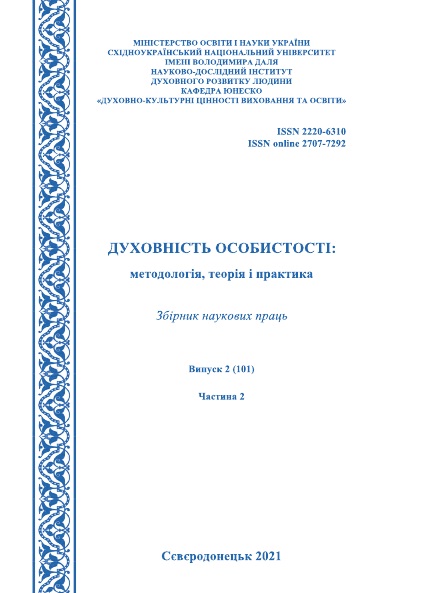THE ESSENCE, PECULIARITIES OF THE SUBJECT MATTER AND THE STRUCTURE OF SOCIO-COMMUNICATIVE COMPETENCE OF FUTURE OFFICERS OF THE STATE CRIMINAL AND EXECUTIVE SERVICE OF UKRAINE
DOI:
https://doi.org/10.33216/2220-6310-2021-101-2_2-36-48Keywords:
Social and communicative competence, personal and communicative component, information and cognitive component, activity and productive component, officer of the Criminal and Executive ServiceAbstract
Socio-communicative competence of an officer of the State Criminal and Executive Service of Ukraine is a determining factor in their successful professional activity. Taking into account scientific papers on forming professional and socio-communicative competence, as well as the peculiarities of professional activity of an officer of the Criminal and Executive Service, their socio-communicative competence is defined as an integrative personality trait that includes personal characteristics and motives of professional activity, special knowledge and skills necessary for establishing socio-communicative interaction with various categories of persons, first of all colleagues, prisoners, their relatives and the public. The personal-communicative, information-cognitive and activity-productive components are distinguished in the structure of socio-communicative competence. The personal-communicative component refers to recognizing of moral norms, focus on universal values of good and justice, communication, willingness to contact other people, tolerance, the ability to adequately self-esteem, readiness for self-development and so on. The information-cognitive component concerns knowledge about the peculiarities of professional communication, understanding of functioning the groups of convicts, the mechanism of regulating joint activity, rules of extreme and conflict communication. The activity-productive component of an officer’s socio-communicative competence includes the ability to clearly express their points of view while communicating with convicts and other categories of people, listen to the dialogue partners, substantiate their decisions, be able to lead discussions and possess persuasion skills in order to reduce coercion.

